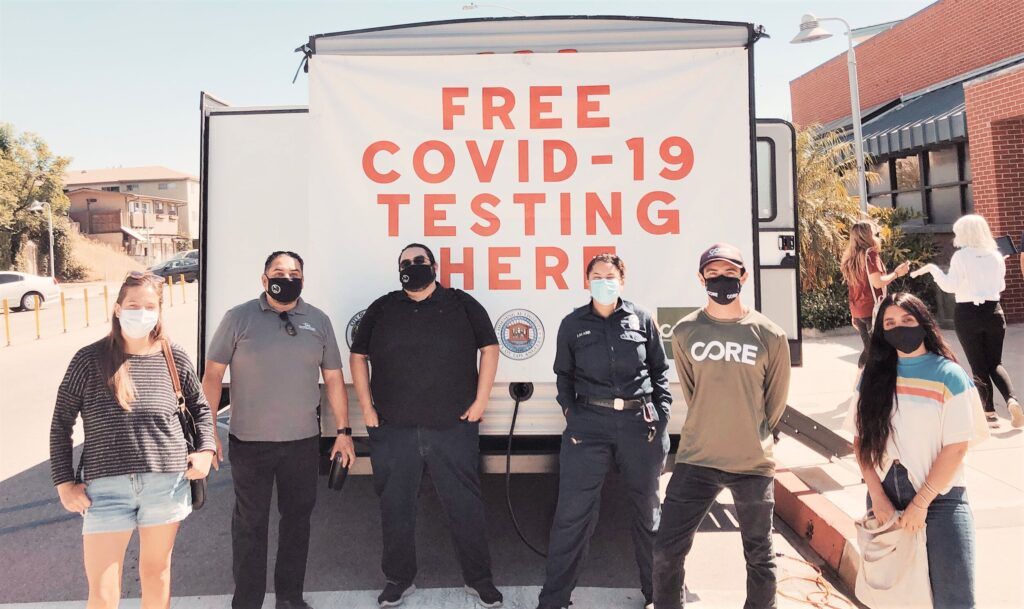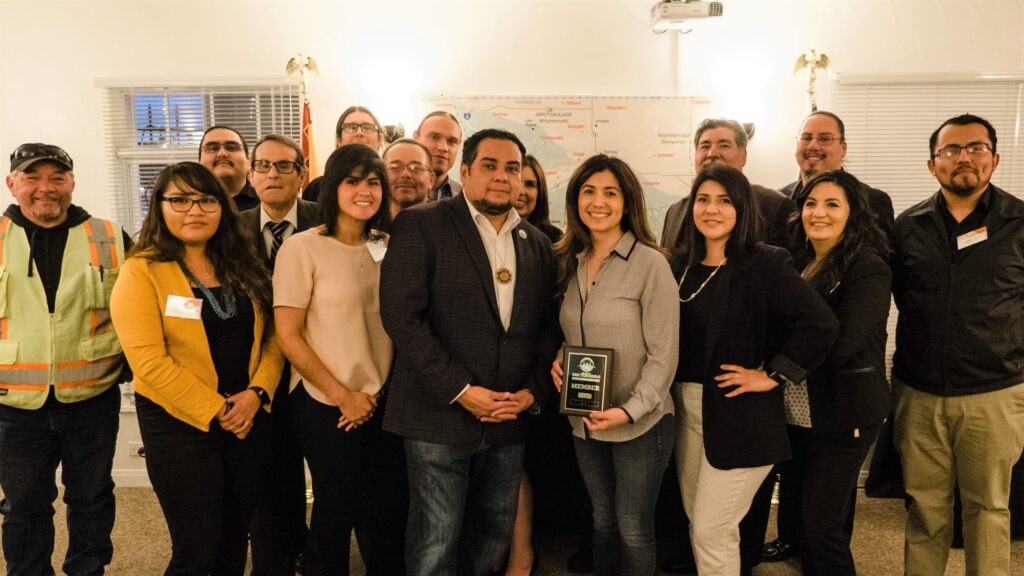HIGHLIGHTS
GET TO KNOW US
GET INVOLVED
MEDIA

REGIONS
California, Georgia, Chicago, North Carolina, New Orleans, Puerto Rico, Kentucky, Navajo Nation, Washington, D.C., Hawaii
INTERNATIONAL
Blog
From the Shadows, a Ray of Hope for Change in a Crisis
Dec, 10 2020

L-R: Alexandra Ferguson Valdes (Executive Director, LA City/County NAIC), Rudy Ortega Jr. (Tribal President, FTBMI), Mark Villaseñor (Tribal Vice President, FTBMI), Afara Lalaind (Deputy MTG Group Supervisor, LA Fire Department), Joe Sartee (Mobile Unit Manager, CORE L.A.), and Kimia Fatehi (FTMBI) at a free COVID-19 testing event operated by CORE at San Fernando Recreation Park in Los Angeles, CA, on August 11, 2020. (Photo credit: Fernandeño Tataviam Band of Mission Indians)
In disaster, those in the shadows struggle more than anyone to come to the light.
Historically, marginalized communities and communities of lower socioeconomic status face the harshest wrath of disaster, and the COVID-19 pandemic has been no exception. Communities of color have been affected disproportionately during the pandemic, suffering the most deaths per capita across the U.S.
As the leader of a community marginalized to the fringe dating back to the settlement of America, Rudy Ortega Jr. knew in the spring, when members of the Fernandeño Tataviam Band of Mission Indians (FTBMI, known colloquially as “Tataviam”) in Los Angeles County’s San Fernando Valley started becoming affected by COVID-19, that he and his staff would have to be proactive in protecting their community.
“All through our history, we’ve learned we always got to have support for our own community because no one else truly looks towards us and makes sure that we’re safe. We’re always forgotten or lost in the shuffle,” said Ortega, Tataviam’s president.
In addition to closing its office early in the pandemic and moving its family reunion, youth summer camp, and tutoring online, the Tribe began selling masks with its tribal seal online to the general public to support the distribution of free masks to its most vulnerable members, most of whom are elderly.
While the majority of Tataviam’s 1,000 members have been following health and safety guidelines and understand the severity of COVID-19, Ortega says, the representation of the American Indian and Alaska Native population in testing was low in the early stages of the pandemic. That sparked a particular concern, as many households in the Indigenous community host three generations, including family members who are construction workers, first responders, medical professionals, retail workers, and other essential workers.
“The Tribe felt we needed to make it seem like it’s comfortable and easy and something that the Tribe’s also supporting and realizing the importance of being tested,” said Ortega.
As the Tribe searched for a testing partner, it encountered a familiar challenge for a non-federally-recognized tribe: funding. With the additional financial burden of the pandemic, fronting the costs for partnerships with organizations charging for testing was poised to add additional strain to the Tribe, which had already asked its employees to volunteer their overtime hours in order to remain afloat.
“All through our history, we’ve learned we always got to have support for our own community because no one else truly looks towards us and makes sure that we’re safe. We’re always forgotten or lost in the shuffle,” said Ortega, Tataviam’s president.

Rudy Ortega, Jr., left of center, and FTBMI staff at an open house in 2019. (Photo credit: Fernandeño Tataviam Band of Mission Indians)
So, when Ortega and his staff were connected with CORE, they were relieved to learn that the organization was offering free, accessible COVID-19 testing with mobile units setting up operations directly in vulnerable communities across the nation.
“We were very pleased and excited how fast and professional CORE’s response [was] for our request for testing,” Ortega said. “The free test makes sure the community is being tested, we’re tracking the data, and making sure that everyone has the opportunity to go out and get their test, and that they’re being safe as well.”
In August, CORE deployed one of its units from L.A.’s mobile testing program led by the City of L.A., in partnership with LAFD and Curative, to San Fernando Recreation Park, half a mile from FTBMI’s office, to administer free COVID-19 tests in the San Fernando community over a two-day period. Wraparound services, including food kits, PPE, and COVID education materials specifically tailored to the American Indian/Alaska Native community, were also offered through partnerships with local government agencies and Native committees.
Among the community members that came out to be tested and protect their community by knowing their status was a member of FTBMI’s own staff, Jenee Ornelas (Program Director of Education and Cultural Learning), who got tested alongside her family members who were experiencing symptoms of COVID-19. Ornelas had to persuade them to get tested, but once their results all came back negative, they all breathed a collective sigh of relief.
“It was a burden off their shoulders because we were worried about their health, and having these services definitely helps,” Ornelas said. “Even though it doesn’t seem like a lot, it is a lot for those who don’t have access to resources or want to call their doctor. It’s a hassle. But this is a stress relief.”
Tataviam’s heritage dates back to time immemorial in Southern California alongside many other Indigenous tribes that have spanned across the land. That heritage began to carry trauma in the late 18th century, when Spanish colonization spurred decades of enslavement, loss of land, and genocide, a period that forged a strong sense of resilience within Indigenous communities.
Today, that resilience is consistently put to the test as they continue to advocate for representation and respect in their community and beyond.
“We’ve just been here living and trying to maintain and preserve our heritage and culture from all contacts that come into California and come into our homelands. We’ve been actively engaging in preserving. All that, in the shadows,” said Ortega, whose father, Rudy Ortega Sr., was the Tribe’s president and chairman for five decades. “In our culture, to be Indian, you are prosecuted easily. Holding land was very difficult, and the effects of that [are] now we’re a landless tribe here and still seeking federal acknowledgement.”
In recent years, Ortega says that Tataviam has seen promising signs of progress in the local community, including the removal of Indian mascots from some local schools. However, this year, despite its devastation, has widened conversations about historically marginalized communities — sparked by both the bright spotlight on racial injustice highlighted by acts of police brutality and the disproportionate impact of the pandemic on marginalized communities — which Tataviam sees as an opportunity for progress.
“Now it’s building a bridge to talk to all these diverse communities because people are saying, ‘Hey, how is this community being impacted? What are we doing wrong or what is happening that the spread is much more like a wildfire in that area versus another area?’ I think it’s brought some discussion to the table. Beside discussion, action needs to take place for our survival out of this pandemic,” Ortega said.
As Tataviam’s Executive Advisor of Policy and Innovation, Pamela Villaseñor, asserts, testing plays a pivotal role in helping to build those bridges.
“It’s one thing to acknowledge a disaster. It’s another thing to have a call-to-action and actually do something with these communities. That’s really the first step to healing historical trauma,” she said. “It may not sound like testing is necessarily a part of that, but testing gives us data. That data gives us power that we can then advocate for change.”
Despite its heavy destruction, the pandemic has served to create coalitions of individuals and organizations within marginalized communities to support each other during their greatest time of need — a phenomenon at the heart of CORE’s mission.
“That’s really the litmus test, is getting our own communities to advocate on their behalf,” said Villaseñor. “Addressing that historical trauma is the only way you move forward, and so I’m really grateful for CORE and that they’re taking on a mission that’s important to empowering communities.”
All photos used with the permission of the Fernandeño Tataviam Band of Mission Indians.
HIGHLIGHTS
GET TO KNOW US
GET INVOLVED
MEDIA

REGIONS
California, Georgia, Chicago, North Carolina, New Orleans, Puerto Rico, Kentucky, Navajo Nation, Washington, D.C., Hawaii
INTERNATIONAL

CORE is a charitable 501(c)(3) nonprofit organization. Federal tax ID: 27-1703237.
© 2024 | CORE – Community Organized Relief Effort | +1 (323) 934 4400
910 N Hill St Los Angeles, CA 90012